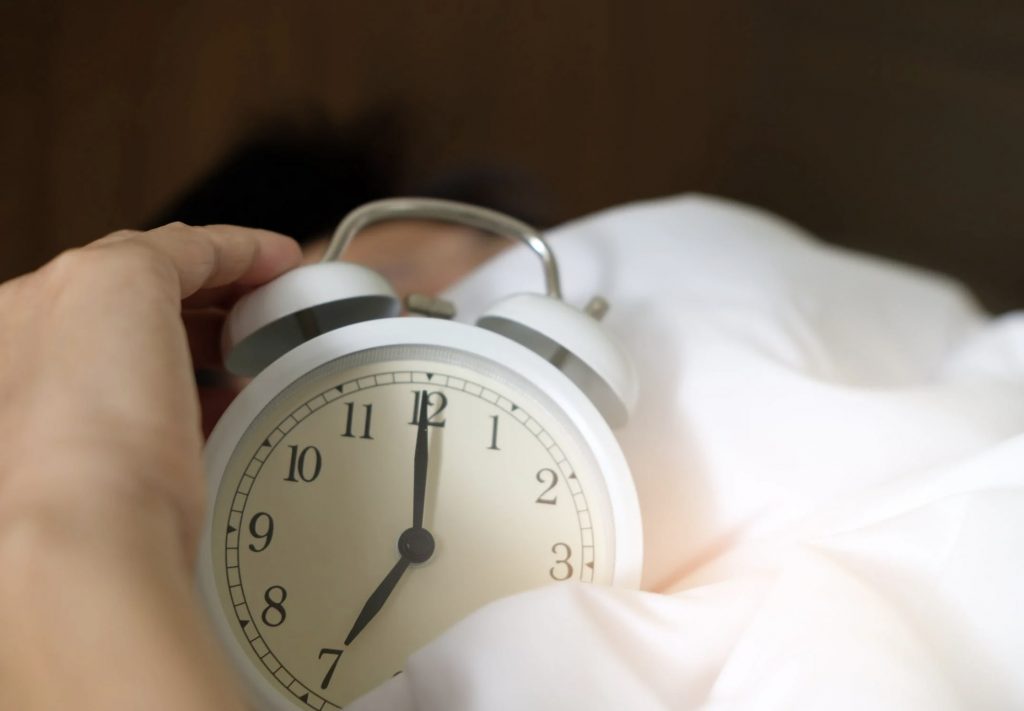How Sleep Helps Mental Health

It’s not surprising that if you get a good night’s sleep, you will almost always wake up in a better mood. Sleep and mental health go hand in hand when it comes to emotional and mental wellbeing, but how exactly are the two connected? Our brain and body act as one to get us up and moving throughout the day. Getting little to no sleep can have great detrimental effects on our focus, mood, mental health, ability to do things, and overall coherence. The recommended 8 hours of sleep every night isn’t just something you hear growing up, it has a science behind it!
How Sleep and Mental Health Are Related
There’s a vicious cycle associated with sleep and mental health. Many times, when you don’t get enough sleep you end up inevitably tired, which can affect your day to day motivation to complete tasks. Due to not effectively reaching your daily goals, you may begin to have lower self esteem or increased feelings of stress. Of course, as the cycle continues, stress means you will have a harder time finding yourself drifting off and therefore repeating itself. Not only this but symptoms such as anxiety, depression, PTSD, OCD, and others can worsen with lack of sleep and the problems associated with these mental illnesses can make it hard to get enough sleep.
Bad Sleep Effects Mental Wellbeing
As you can tell, having a terrible night’s sleep can greatly impact your daily living and inhibit you from feeling your best self. Not only this but it can have a worsening effect on your mental health and symptoms associated with any mental illnesses. You may also find yourself developing a strong sense of anxiety or depression that may not have been present before. This is because having no sleep means you will lack energy to visit others or socialize, increasing feelings of loneliness. Additionally it may make you susceptible to not being able to concentrate, or make decisions.
If you have a job, are a parent, or a student this can be extremely stressful to deal with because you begin to feel like you’re falling behind only increasing the feelings of worry and repeating the cycle. Depending on how persistent and bad the issue is, it may be best to seek out professional help to break the cycle and allow yourself to get sleep and feel restored.
Benefits of Sleep
Sleep and the benefits it has on your mental health are astronomical. You will be able to think more clearly, focus for longer periods of time, get along better with others, feel reduced irritability, feel less stressed and worried, and much more. Lacking these qualities can increase unwanted symptoms of mental health, therefore, getting the sleep you need will greatly improve your overall mental wellbeing. Not only this, but sleep can also help you with your physical health. When you get your full 8 hours of sleep consistently, there’s a greater chance that you will get sick less often, increase your productivity, have less heart problems, have improved memory, and overall be in a better mood.
At Eva Carlston, we have often found that our students have developed unhealthy sleeping patterns which, as we learned, has a negative effect on their mental health. Helping them not only break the cycle of poor sleep but also teach them the importance of a good night’s rest, sets them up for success long term. Your sleep is important and should be treated as such, if you feel like you just can’t get enough z’s, it may be time to seek out a professional or alternative methods such as meditation to help lull yourself to bed. Sleep is an important part of our mental and physical health!
Call: 801-449-0089
Address: 4943 S Wasatch Boulevard, Salt Lake City, Utah 84124
